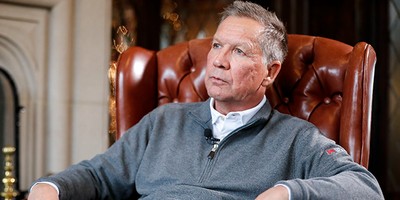President Obama praised his decision to restore diplomatic relations with Communist Cuba in the State of the Union address. America’s credibility in the region would now be restored, he argued. The president clings to a Cold War notion that Cuba represents Latin America in the 21st century, and in the same breath scolds his opponents for living in the past. Meanwhile, the rapprochement strategy shows no signs of changing economic liberties and human rights on the island. Indeed, the Castro regime used the new era in U.S.-Cuban relations to deploy troops to the Middle East in support of Russia and Syria. Real achievements should involve supporting the free-market, U.S.-friendly leaders realizing electoral victories throughout Latin America, rather than illusions of progress with a government still hostile to freedom.
The president has diverted enormous government resources towards its work with America’s foes and has little to show for it. Russia practically ignored the administration’s “reset” proposition. The Bear then went on to occupy parts of Ukraine, where it currently remains. The so-called “pivot” to Asia looks more like a “trip-and-face plant” as China moves undeterred in the South China Sea. Iran also saw no reason to alter its behavior after the nuclear deal and has since deployed forces to Syria and test-fired a ballistic missile in direct violation of the agreement. American officials suspect that Iranian representatives were even present during North Korea’s most recent nuclear detonation. In all, adversaries remain collectively unresponsive to the president’s rapprochement tactics.
The same miscalculations plague the Cuban situation. Aside from reestablishing diplomatic relations, the president eased a handful of existing economic policies that previously limited U.S. business interaction, American travel, and remittance to and from Cuba. The administration correctly understood that political change in Cuba would involve access to American capital. The administration wrongly believes economic initiatives alone will lead to political reform.
Senior Scholar at the Institute for Cuban and Cuban-American Studies José Azel believes easing U.S. financial restrictions will not inspire broader reforms in Cuba so long as the political system remains unchanged. No amount of remittances can overcome the fact that the government controls the flow of capital. These stifling controls have, for example, relegated the self-employed to a small band of subsistence workers who specialize in menial tasks like fixing umbrellas. In fact, Azel reminds us that the Castro administration’s longstanding hostility towards the entrepreneur means “self-employment without the guarantees of political freedom” will invite “intensified repression.” In other words, more capital without political change may actually create more oppression.
Recommended
Few businesses or investors will want to venture into an area where the military is the controlling shareholder and where the government still subjects companies to the possibility of expropriation for vague reasons of “public utility” or “social value.” Azel explains that companies will likely avoid this “environment of systemic corruption, where there is no independent judiciary to adjudicate claims by a foreign investor.” So despite the president’s efforts, life in Cuba still reflects that Machevillian saying wherein, “the reason there will be no change is because the people who stand to lose from change, have all of the power. And the people who stand to gain from change, have none of the power."
The pending surrender of Guantanamo Bay symbolizes the more sinister element of rapprochement and illustrates how far the president will go to win the hearts of America’s adversaries. He is sacrificing U.S. advantage, while requiring very little from the Cuban government. Strangely, the president rarely advertises closing Guantanamo Bay as a Cuban issue. During his State of the Union, he once again trotted out the antiquated notion that the detention center represents a recruiting tool for enemies. But the evidence shows that terrorists no longer draw inspiration from it. Girls in the classroom, the president’s evolution on gay marriage, and America’s Christian heritage do more to inspire ISIS’ delinquents than the Malibu retreat at Guantanamo Bay.
The White House knows this. By peddling a knowingly outdated justification and underplaying the Cuban angle, the president is inadvertently conceding that closure will not be in the best interest of the United States. If it were in America’s interest, he would immediately tout the real reason and ditch the debunked one.
As a result, America sits unnecessarily disadvantaged because the president chases those uninterested in a healthy America, rather than those who would welcome it. This reality remains especially unnerving since a free-market movement grows throughout Latin America. Chavismo and the devastation it has caused the Venezuelan economy no longer has a strangle-hold on the government. The Peronistas in Argentina lost the presidency to a man who plans to apply some free-market principles to an Argentine economy that has historically performed well below its potential. The president of Brazil even faces the prospect of impeachment because of her failed promises of greater economic advantage.
Fate has presented the United States with an enormous opportunity. America would benefit greatly from better relationships in Latin America, which often follow free trade agreements. But even this remarkable political transformation has not diverted the president’s attention. His myopic focus on Cuba during this remarkable moment in Latin American history remains one of the more mind-numbing strategies of our time.
The State of the Union sounded more like the State of Surrender. It is hard to imagine a more fictional script than the one listed as “achievements.” Unfortunately, the real world is not on the same page.
























Join the conversation as a VIP Member